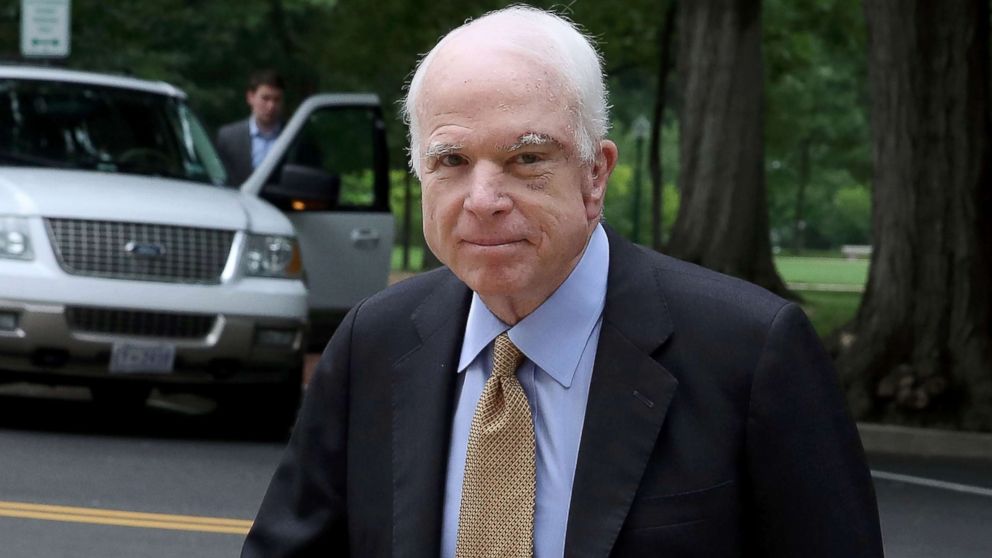ANALYSIS: Front and center, McCain shows the power of allies in DC
McCain sent a powerful message to the president.

— -- By putting himself front and center of the growing divide between the Republican White House and Republican Congress, Sen. John McCain, R-Ariz., sent a powerful message to the president early Friday morning: It takes allies to get anything done in this town.
On Tuesday, Republicans cheered their Arizona senator when he swooped in and kept their hopes of passing an Obamacare repeal alive. But by the wee hours of Friday, it was Democrats who wanted to hug the war hero for voting with them to keep the Affordable Care Act on the books and defeat the last Republican plan standing, known as the "skinny" repeal. In a blink, President Donald Trump's tweets about McCain moved from appreciation to anger.
Governing is hard. It is always easier to unite a party in opposition than it is to get everyone to agree on what should be the law of the land. The president this morning argued that Senate leadership should change the rules, but lowering the threshold to 51 votes on non-budget bills would not have helped them when they could not get 50 Republican senators to stand together. Instead, looking in the mirror and acknowledging the vast differences in opinions in their ranks might be necessary if Republicans hope to pass any legislation down the road. That, and maybe working across the aisle.
McCain has not been a health care champion, but his move means he will likely get his bigger wish: a return to more regular order. Boring or sheepish as it sounds, committee work, incremental legislation and even bipartisanship might be more of what’s in store.
There will be questions about whether Senate Majority Leader Mitch McConnell, R-Ky., should go, as there were after House Speaker Paul Ryan, R-Wis., struggled to unify his colleagues voting too. But a big move like that still seems far off. Leadership from both chambers agree that they should tackle tax reform next. It is a topic less politically explosive than health care, but still plenty controversial. The defeat over health care is more likely to make tax reform harder, not easier.
Yes, Republicans may feel desperate for a win, but many must also feel burned. Senators like Dean Heller, R-Nev., Shelley Moore Capito, R-W.Va., and Rob Portman, R-Ohio, were not jazzed about the options presented to them on health care, but they went out on a limb for McConnell. Heller is considered the party's most vulnerable Republican, but he and others toed the party line and made politically risky votes because leadership said it would work out. They could be much harder to convince next go-around. Democrats will inevitably start trying to hang Heller on that vote. The fact that some top Republicans said on camera Thursday night, just hours before the vote, that the plan was a "disaster" gave fodder for dozens of Democratic ads.
Plus, Republicans had hoped to scrap a number of taxes in an Obamacare repeal. They may have to do some rewrites on tax reform now.
Earlier this year, it seemed the White House was much more read-in and focused on the nuances of tax reform, but the ongoing sagas in Washington, D.C., have left Congress less interested in working with the folks down Pennsylvania Avenue.
The president’s threat to let the health care marketplaces implode and pull subsidies for people buying insurance does not have support among mainstream Republicans. And, in what may have been a sign to Trump, that sanctions bill that passed this week with overwhelming margins in both chambers was designed to limit presidential power.




